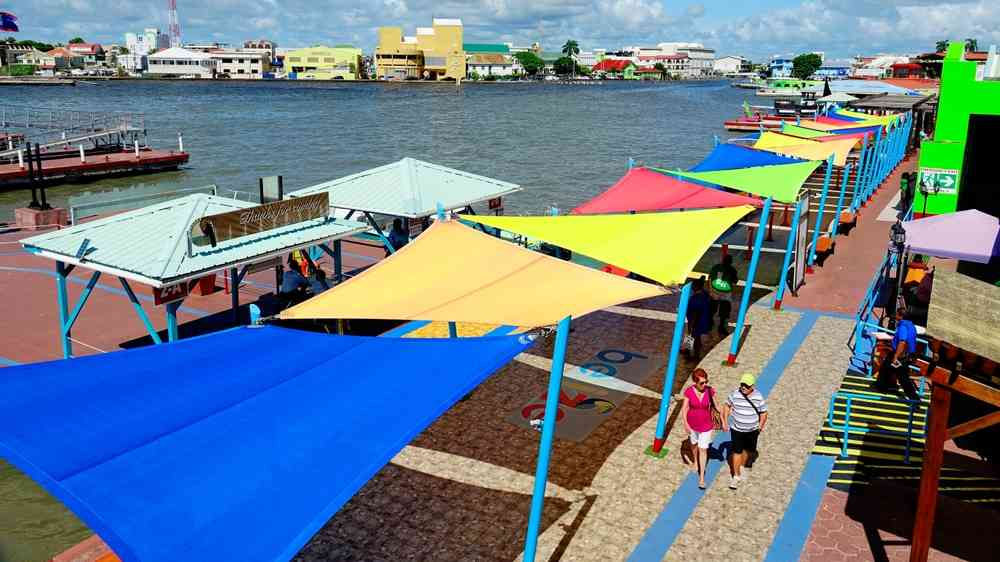
The first national consultation on the Early Warnings for All (EW4All) initiative marked a significant step in assessing Belize’s current state of early warning systems and identifying gaps that will inform an actionable national roadmap. This roadmap will guide the country towards a multi-hazard, accessible, and inclusive early warning systems—that goes beyond meteorological hazards to address a broader range of risks.
Held from 5 to 7 May and convened by the Government of Belize, the United Nations Resident Coordinator’s Office, and partners including the United Nations Office for Disaster Risk Reduction (UNDRR), the World Meteorological Organization (WMO), the International Telecommunication Union (ITU), and the International Federation of Red Cross and Red Crescent Societies (IFRC), the consultation served to consolidate a national diagnosis of gaps and opportunities, and to outline the pillars and areas of improvement that will shape a coordinated national strategy.
“Let this workshop be the catalyst for a renewed national commitment—where we strengthen our multi-hazard early warning systems, mobilize the financial and human resources we need, and align our efforts with ongoing initiatives. 'Early Warnings for All' is not just a UN vision—it must be Belize’s vision. Together, with knowledge, partnership, and will, we can build a more resilient and inclusive Belize for generations to come,” said Mr. Carlos Pol, Chief Executive Officer in the Ministry of Economic Development, speaking on behalf of the Prime Minister of Belize, Hon. John Briceño.
This national process is supported by a set of complementary initiatives. Central among them is the development of the Country Work Programme (CWP), led by the National Emergency Management Organization (NEMO) with support from the Caribbean Disaster Emergency Management Agency (CDEMA), which sets disaster risk management priorities for the next four years. The Climate Risk Early Warning Systems (CREWS) project—implemented jointly by UNDRR and WMO—enhances the enabling environment for early warning systems. These efforts are further reinforced by Belize’s participation in the Making Cities Resilient 2030 (MCR2030) initiative.
“We recognize the Government of Belize’s strong commitment to disaster risk reduction, clearly reflected in the development of its CWP and its focus on building inclusive and integrated early warning systems,” said Nahuel Arenas, Chief of UNDRR’s Regional Office for the Americas and the Caribbean. “At UNDRR, we reaffirm our support to work alongside local governments to strengthen resilience and protection for all,” he added.
The consultation also served as a platform to launch the UN Joint SDG Fund Programme Belize Inclusive Resilience in Safe and SMART Spaces, implemented by UN Women and UNDRR, in partnership with the Ministry of Rural Transformation, Community Development, Labour and Local Government. The programme focuses on urban resilience, gender equality, and community safety, promoting safe and smart spaces and the development of inclusive local disaster resilience action plans for Belize City.
The launch began with the official signing ceremony of Belize City’s entry into the MCR2030 initiative. During the event, His Worship Mayor Bernard Wagner formally handed over the signed Letter of Commitment to UNDRR’s Regional Chief of Office, signaling Belize City’s role as the newest member of the global MCR2030 network and reinforcing its commitment to building a safer, more resilient urban future.
“Our participation in MCR2030 is more than symbolic. It is a declaration that Belize City is committed to a future where safety, preparedness, sustainability, and inclusive urban development are not optional, but essential,” said Mayor Bernard Wagner, Mayor of Belize City.
“This effort is about ensuring that more people—especially in the most vulnerable communities—receive early warnings in time and know what to do,” said Hon. Henry Charles Usher, Minister of Public Service, Governance, and Disaster Risk Management.
Beyond reports and diagnostics, the true impact of these initiatives will be measured by their capacity to save lives and protect livelihoods, especially in vulnerable communities and among historically excluded communities.
“Belize’s commitment to linking national policies with concrete local action is an encouraging step toward the goals of the Sendai Framework. This progress reminds us that when we work in coordination and keep people at the center, resilience becomes both possible and real,” said Raúl Salazar, United Nations Resident Coordinator in Belize and El Salvador.
Resilience is more than a policy; it is a daily practice that demands coordination, evidence, participation, and political will. In this journey, Belize and El Salvador stand as natural partners. What is learned in one context can—and should—strengthen action in the other.

